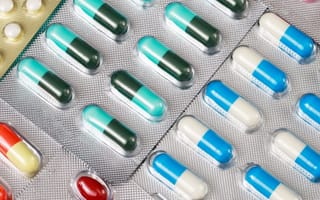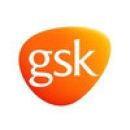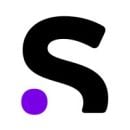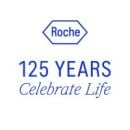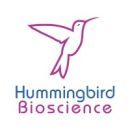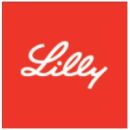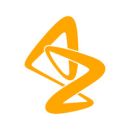Singapore has emerged as a major hub for pharmaceutical giants like Roche, Pfizer and GSK. Offering advanced biomedical infrastructure, robust government support and a strategic location, the city-state plays a crucial role in vaccine production, biologics and other cutting-edge medical developments — solidifying its position as a vital component of the global pharmaceutical industry.
The companies below are among those leading the way.
Top Pharmaceutical Companies in Singapore
- Pfizer
- Johnson & Johnson
- Roche
- AbbVie
- Novartis
- AstraZeneca
- Bayer
Pharmaceutical Companies in Singapore
Johnson & Johnson is one of the most well-known healthcare companies in the world, with a history that dates back to 1886. It is now a top manufacturer of medical devices and pharmaceuticals, producing treatments for everything from HIV to Covid-19. While the company’s main headquarters is located in New Jersey, its headquarters for the Asia Pacific region is located in Singapore’s Science Park.
AbbVie is a research-based biopharmaceutical company that spun off from medical device company Abbott Laboratories in 2013. Humira, its flagship product, is used to treat a variety of autoimmune diseases, including arthritis and psoriasis. Based in Chicago, AbbVie operates out of more than 70 countries around the world, including Singapore, where it has both a corporate office and a facility for manufacturing the small molecules and biologics that go into its immunology and oncology medications.
GSK is a London-based biopharmaceutical company that treats infectious diseases, HIV cancer and respiratory conditions. It is also known for developing the first malaria vaccine, along with other “essential medicines.” GSK claims to be the first global healthcare company to establish a presence in Singapore in 1959, and says it remains one of the biggest contributors to its biomedical sciences sector. The city-state is the headquarters for GSK’s Global General Medicines business, as well as the hub for its Greater China and Intercontinental (GCI) and Emerging Markets (EM) regions. It also hosts three GSK manufacturing sites, including two global supply facilities and a vaccine production facility.
Founded in 1668, Merck is the world’s oldest pharmaceutical and chemical company. Its product portfolio includes cancer treatment Keytruda, the world’s best-selling drug, and vaccines for mumps, measles, chickenpox. Merck has several packaging facilities throughout Singapore for vaccines, biologics and inhalers, as well as a fill-finish facility for Keytruda and HPV vaccine Gardasil. In 2024, the company also opened its first digital hub in the city-state, where it will drive innovation in the healthcare and semiconductor industries.
Pfizer develops drugs, vaccines and other therapies for conditions across areas like oncology, immunology, neurology and cardiology. Some of its most popular products include antidepressant Zoloft and pain-reliever Advil. The multinational corporation first established a presence in Singapore in 1964 and is now the city-state’s top pharmaceutical manufacturer. Its 429,000-square-foot plant in Tuas Biomedical Park produces active pharmaceutical ingredients (APIs) for cancer, pain and antibiotic medication.
Amgen uses artificial intelligence and generative biology to make innovative biologic therapies that treat illnesses across areas like oncology, cardiology and nephrology. Its top-selling products include the TNF inhibitor Enbreal, which treats autoimmune diseases, and Rapatha, which helps manage cholesterol. The California-based company opened its first Asian manufacturing facility in Singapore 2014, followed by its first commercial chemical synthesis plant in 2015. The city-state now serves as Amgen’s Asia Pacific regional headquarters.
Bristol Myers Squibb is a New Jersey-based biopharmaceutical company that develops therapies across immunology, cardiology, hematology and oncology. It has more than 55 different compounds in development, and is testing drugs across more than 40 disease areas. While it is primarily based in the United States, the company has a large presence in Singapore, where it handles the wholesale distribution of both prescription and proprietary drugs across the Asia Pacific region.
Novartis is a Swiss multinational pharmaceutical company that develops medicine through five separate biotherapeutic platforms, making breakthrough treatments in areas like cardiovascular, metabolism, neuroscience and immunology. Its portfolio includes popular treatments for psychiatric disorders like ADHD and schizophrenia, as well as Alzheimer’s, Parkinson’s and breast cancer. The company opened its first innovation hub for the Asia Pacific Middle East and Africa region in Singapore, and has a corporate office and manufacturing facility in the city-state.
Sanofi is one of the largest producers of vaccines, protecting half a billion people around the world. Founded in 1973, the company is known as the first global supplier of the injectable polio vaccine, which was later followed by the first influenza, meningitis and rabies vaccines. Today, the Paris-based company operates in nearly 100 countries, with two manufacturing plants and a regional export center in Singapore that together employ more than 400 people.
Roche is one of the largest pharmaceutical companies in the world by revenue, and a leading global provider of cancer treatments. Although Roche is primarily based in Switzerland, Singapore is a vital hub for its pharmaceutical and diagnostic operations across the Asia Pacific region. The company also established a separate technical operations subsidiary in the country in 2009, which comprises two facilities in Tuas Biomedical Park dedicated to manufacturing biological medicines.
Schwabe Pharma Asia Pacific was launched in 2005 as a Singapore-based subsidiary of the Schwabe Group, one of the oldest pharmaceutical manufacturers in Europe. The Schwabe Group comprises several affiliated companies in the pharmaceutical and healthcare industry, all of which focus on plants as a basis for developing medications and other health products. In the case of Schwabe Pharma Asia Pacific, the company makes and distributes a wide range of homeopathic drugs and herbal medicines, ranging from cold treatments to pills that promote mental health.
Albatroz Therapeutics is a pre-clinical-stage biotech company that develops therapeutic antibodies to prevent tumor growth and treat arthritis. The goal is to inhibit the proliferation of cancer cells while minimizing toxicity. Founded in Singapore in 2020, Albatroz says it is the first company in the world to target Calnexin, a crucial protein in the spread of tumors and cartilage breakdown. In 2024, it was accepted into Johnson & Johnson’s local accelerator program, JLABS Singapore.
Bayer is a German pharmaceutical and biotech company that sells health and nutrition products. Beyond its widely distributed pain-killer Aspirin, it produces antibiotics, pharmaceuticals and over-the-counter consumer products like allergy treatment Claritin, antacid Alka-Seltzer and One-A-Day vitamins. Singapore is Bayer’s regional headquarters for the Asia Pacific market, and includes departments for pharmaceuticals, crop science and consumer health.
Hummingbird Bioscience is a Singapore-based biotech company that focuses on the discovery and early development of oncology drugs. Using insights from its in-house, AI-enabled Rational Antibody Discovery platform, its research team can design tailor-made antibodies capable of inactivating cancer cells on sight, inhibiting tumor growth and preventing drug resistance, according to the company.
Moderna develops vaccines using mRNA technology, which instructs the body to produce proteins that boost the immune system. This approach was used to develop one of the first vaccines against Covid-19 and is continuing to be used to develop therapies for infectious diseases, cancer, cardiovascular diseases and cystic fibrosis. The Cambridge, Massachusetts-based company opened its Singapore branch in 2022, along with offices in Hong Kong, Taiwan and Malaysia, as part of a larger commercial expansion across Asia, which now represents “an integral part” of its business, according to Moderna.
Raffles PharmaTech provides advanced chemical development and pharmaceutical manufacturing services to companies all over the world. Its specialties include chiral molecules, heterocycles, cryogenic processing and organometallic chemistry. Founded in Singapore in 2011, the company has manufacturing sites and research facilities throughout the city-state, as well as in China.
Eli Lilly is an Indiana-based pharmaceutical company that manufactures top-selling drugs like antidepressants Prozac and Cymbalta, erectile dysfunction medication Cialis and Mounjaro, a diabetes drug that also aids in weight-loss. Founded in 1876, the company claims to be the first to commercialize insulin, and has since launched a program to cap the out-of-pocket cost of its insulin to $35 a month for people with and without insurance. Eli Lilly conducts research across dozens of countries, including in Singapore, where it has a research and development center for systems biology.
BioNTech is a German biotech company that develops immunotherapies for personalized disease treatment. It uses mRNA to create vaccines for infectious diseases, individualized immunotherapies for cancer, as well as protein replacement therapies for rare diseases. The company also develops cell therapies, novel antibodies and small molecule immunomodulators to treat cancer. BioNTech opened a Southeast Asia regional headquarters in Singapore in 2021, along with a manufacturing facility to support both local and global supply of mRNA-based vaccines.
AstraZeneca develops medical and technological treatments for inflammation, cancer, cardiovascular diseases, respiratory issues and gastrointestinal conditions. Founded in 1999, AstraZeneca operates in more than 100 countries, including Singapore, where it is currently building a $1.5 billion manufacturing site to produce a category of cancer-killing drugs called antibody-drug conjugates — the first facility of its kind for the company.

